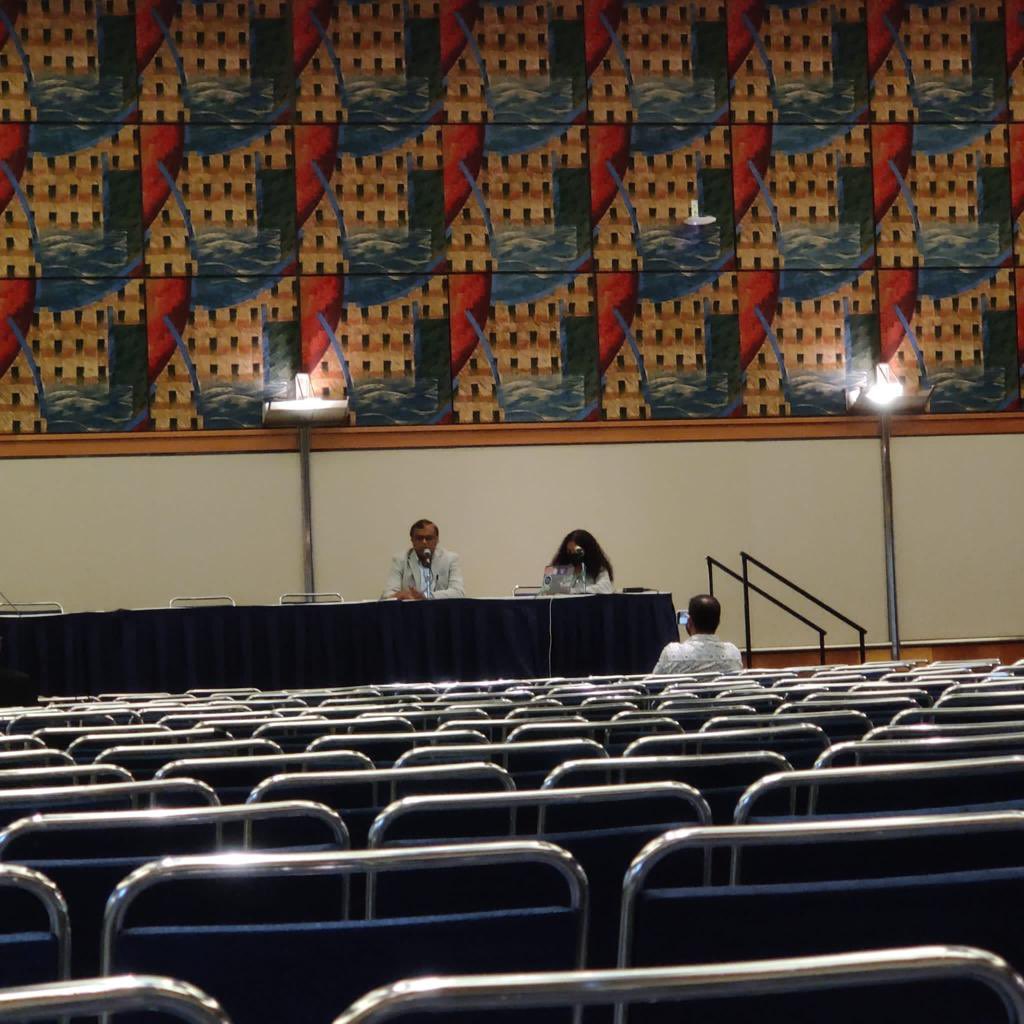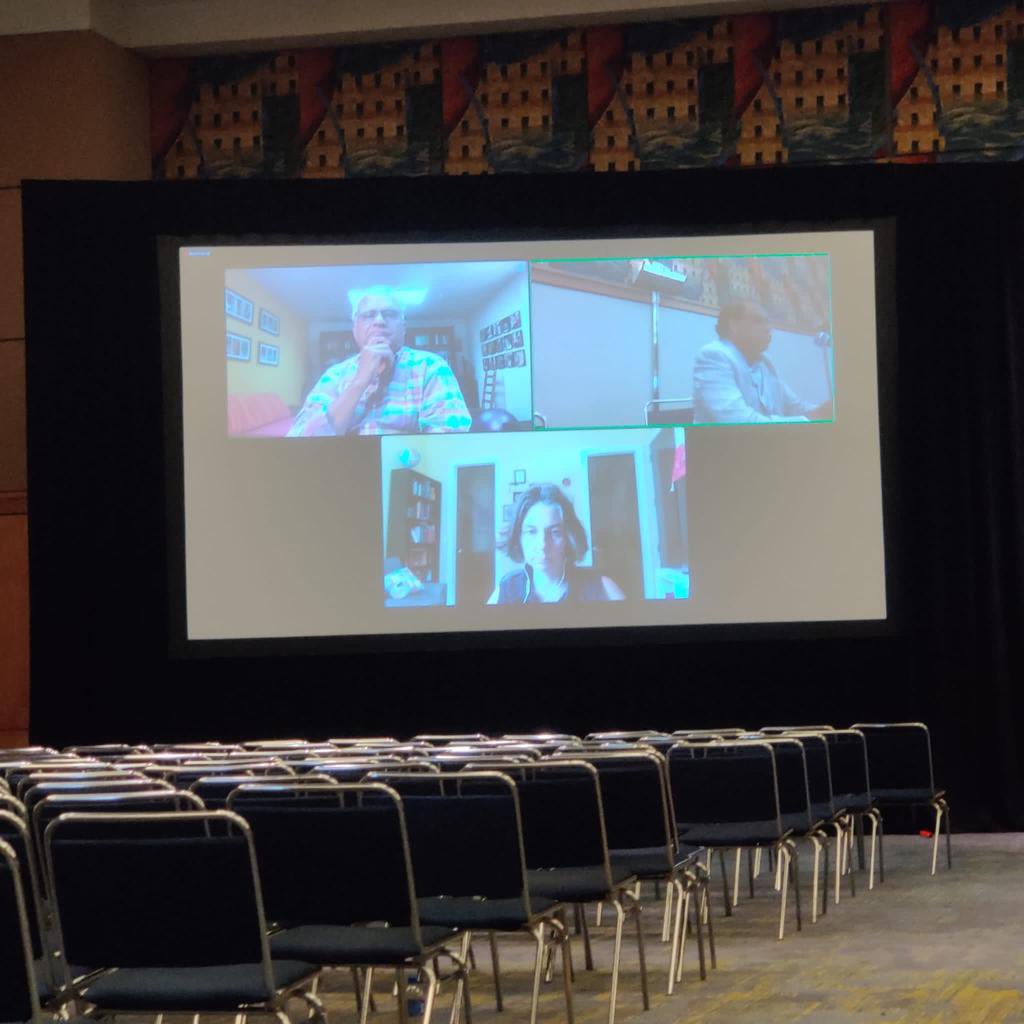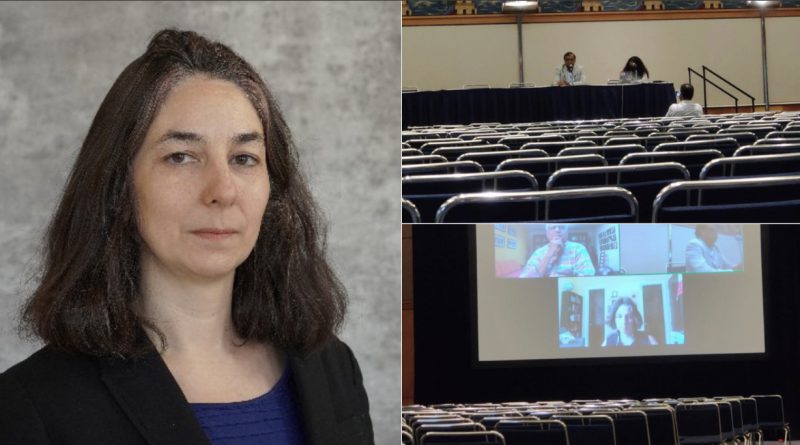Empty Chairs and Vacant Hall: Audrey Truschke’s event on the ‘Importance of Freedom of Speech’ fails to attract Attendees
Truschke’s empty chairs and vacant hall may be viewed as a wakeup call for her and others who share a similar approach.
Controversial historian Audrey Truschke’s highly anticipated event, focusing on the significance of freedom of speech in defending human rights, experienced a disappointing turnout as the venue echoed with empty chairs and vacant seats. The lack of attendees at the gathering appears to reflect a resounding message from the public, indicating their disinterest in embracing what many perceive as “malicious propaganda aimed at destabilizing countries”.
Truschke, known for her controversial views and provocative statements, along with the speakers of Indian American Muslim Council (IAMC) like Rasheed Ahmed, had hoped to attract a large and diverse audience for a biased discussion on the role of freedom of speech in safeguarding human rights. However, the event, initially intended as a platform for dialogue and intellectual exchange, instead served as a stark reminder of public skepticism surrounding Truschke’s agenda.
Held at a prominent venue in the heart of the city, the event was anticipated to draw individuals eager to engage with Truschke’s ideas. Nevertheless, the lack of attendees conveyed a clear message: the public is increasingly unwilling to entertain narratives perceived as potentially harmful and divisive.
Critics have frequently accused Truschke of promoting a narrative that seeks to destabilize countries by exploiting sensitive historical events. They argue that her approach disregards the complexities of history and selectively chooses facts to support her own agenda.
While freedom of speech unquestionably remains a fundamental right that should be safeguarded, the response to Truschke’s event underscores the importance of responsible speech and the rejection of misinformation. It seems that people are becoming more discerning in their consumption of information, unwilling to endorse ideas they perceive as potentially harmful or misleading.


This incident serves as a reminder that the responsibility of speakers and intellectuals extends beyond exercising the right to freedom of speech. It is crucial to approach topics with sensitivity, integrity, and a commitment to truth, in order to avoid undermining the very values they claim to defend.
Truschke’s empty chairs and vacant hall may be viewed as a wakeup call for her and others who share a similar approach. It serves as a reminder that the public demands intellectual rigor, balanced perspectives, and constructive dialogue that fosters understanding, rather than divisive narratives that sow discord and instability.
As discussions surrounding the importance of freedom of speech persist, it is imperative to uphold the values of critical thinking, respect for diverse viewpoints, and responsible dissemination of information. Only through such a collective effort can societies navigate the complexities of today’s world and ensure that the defense of human rights remains a unifying force rather than a source of division.



